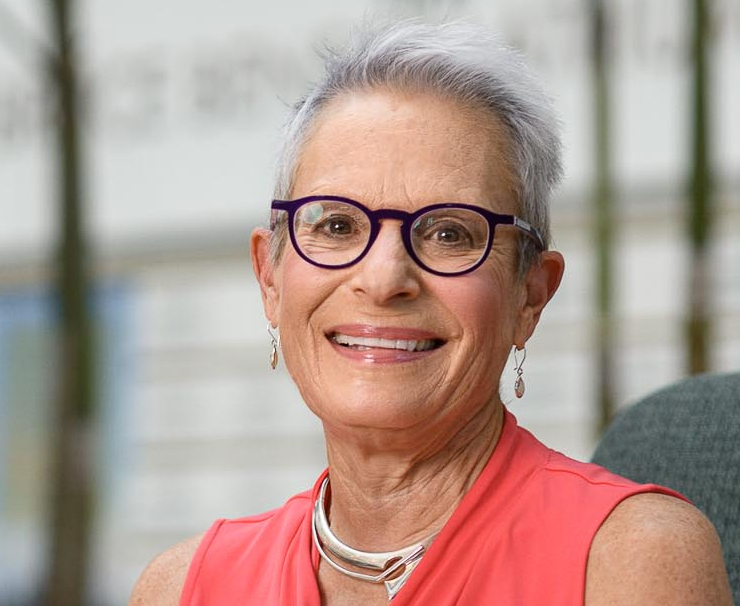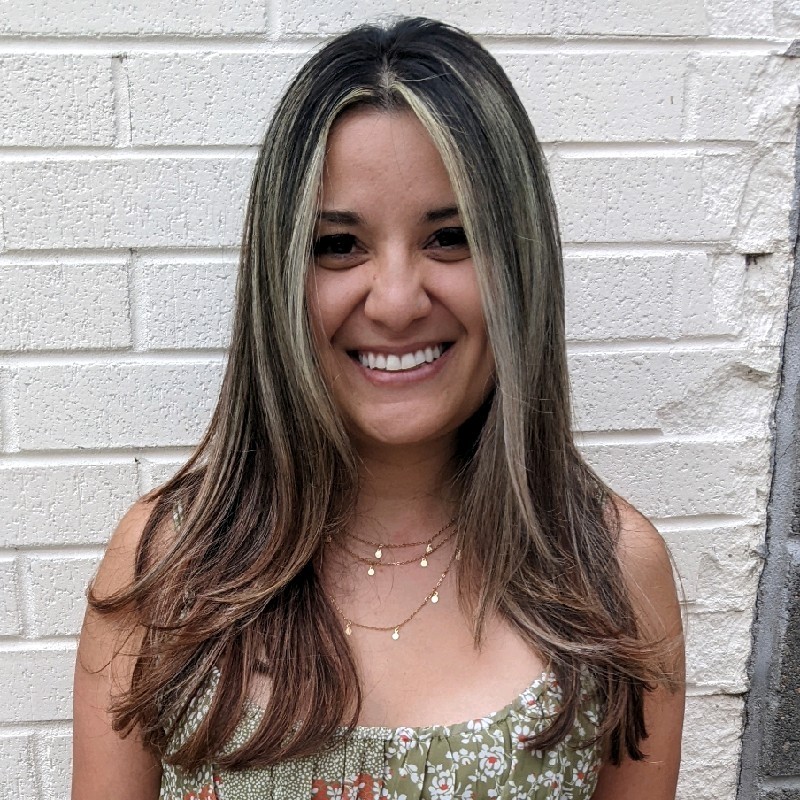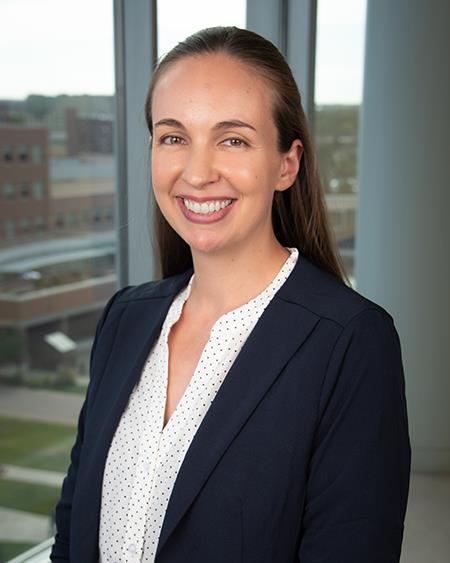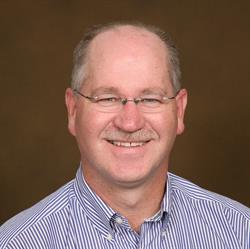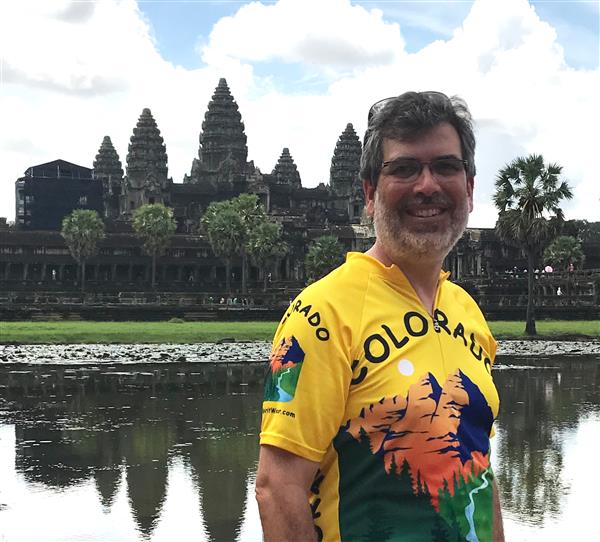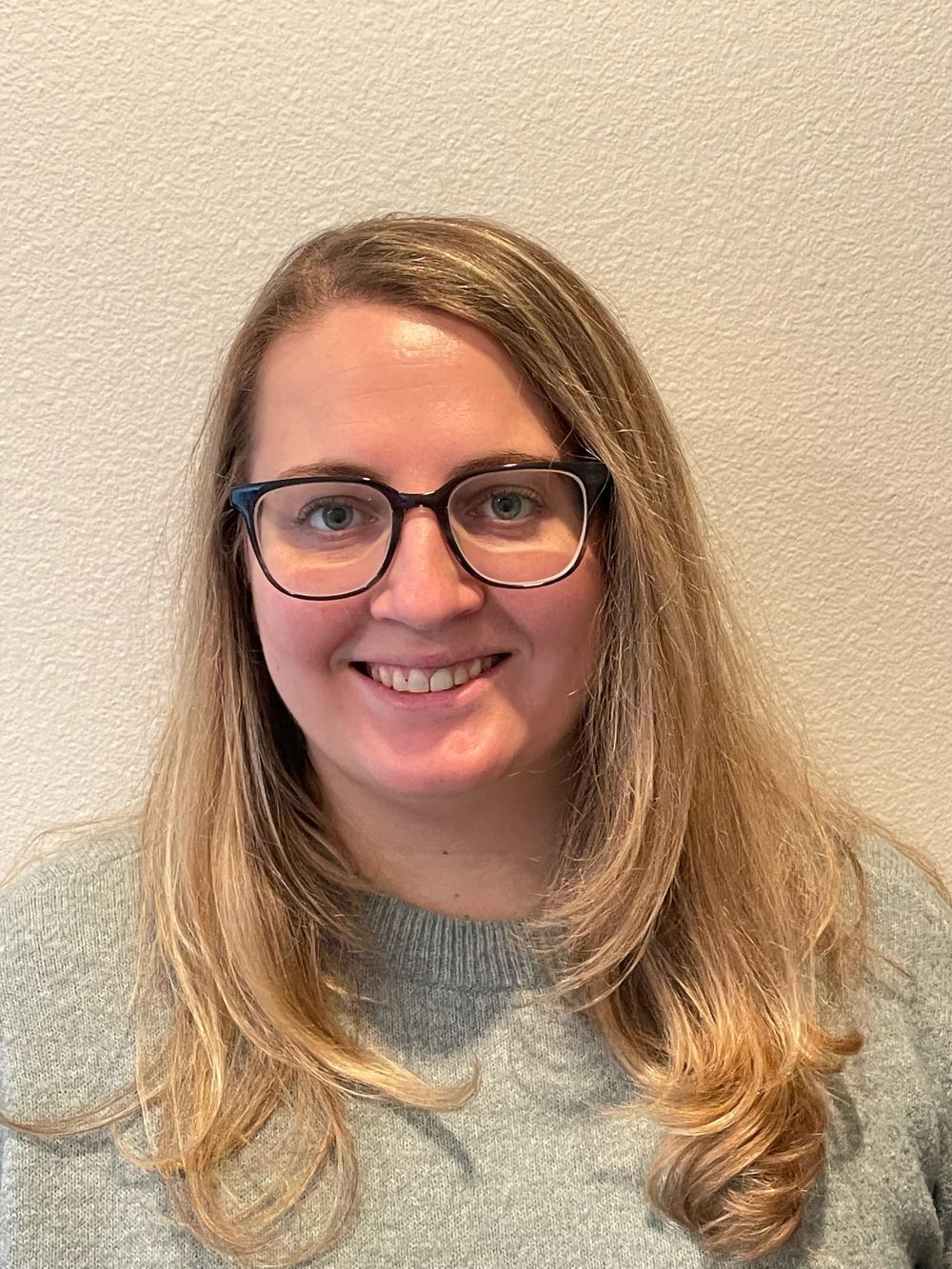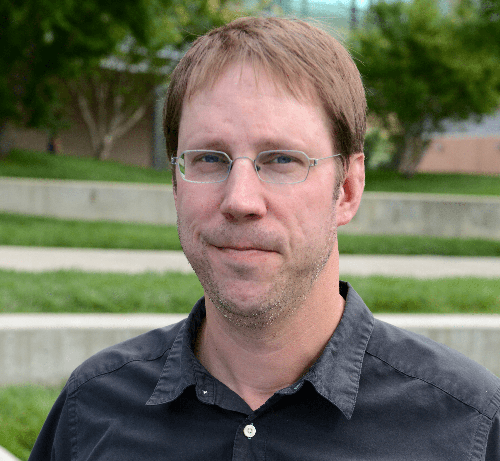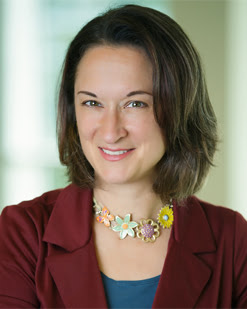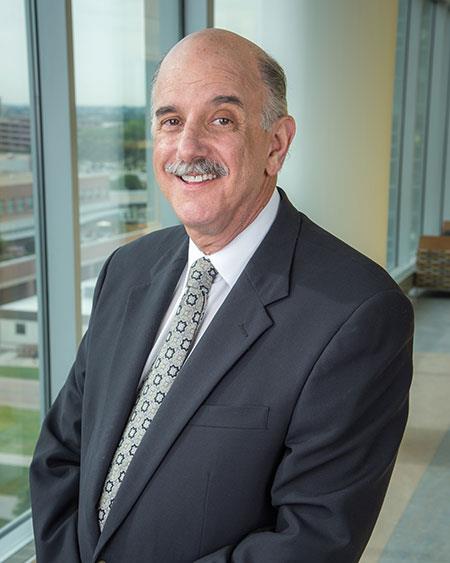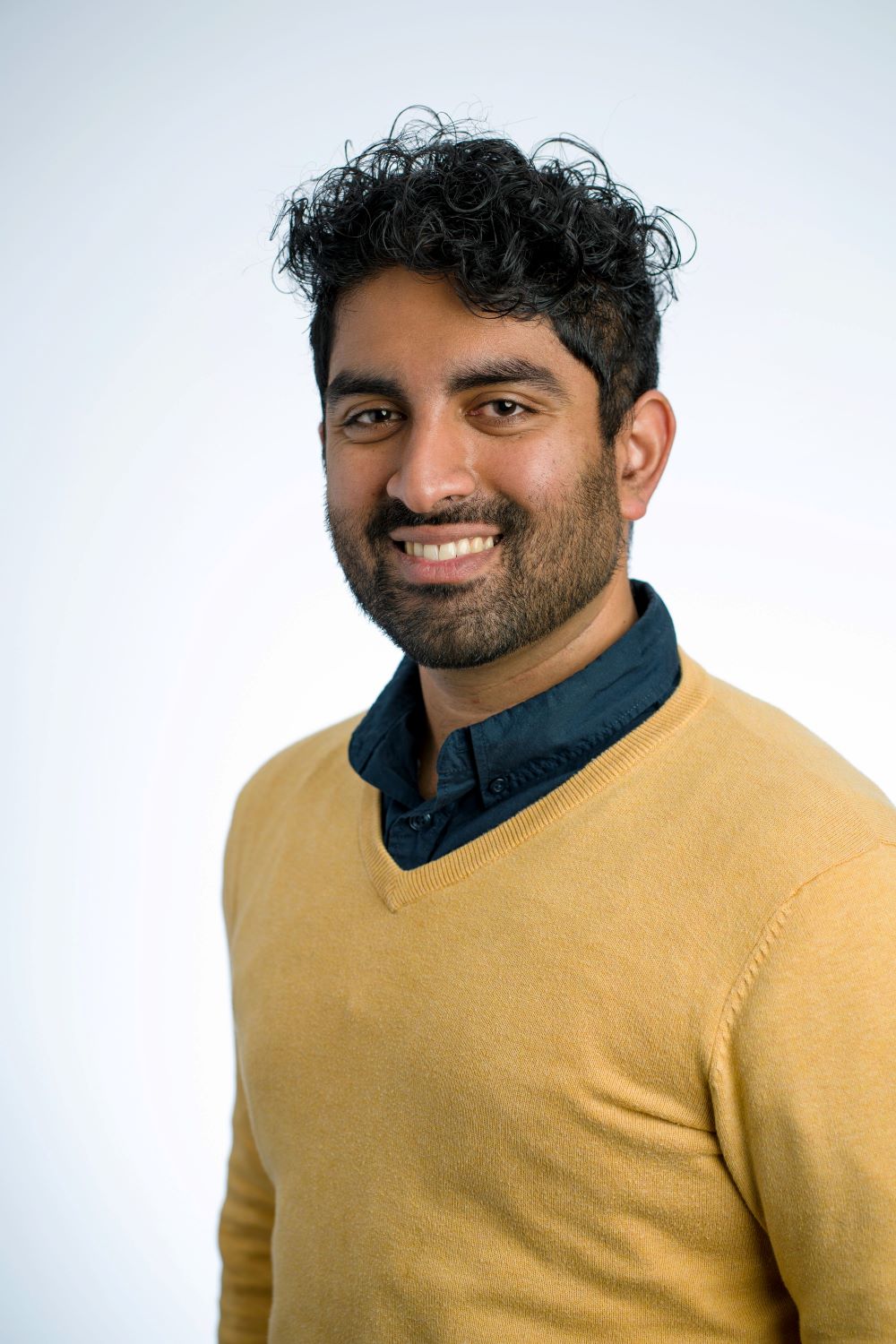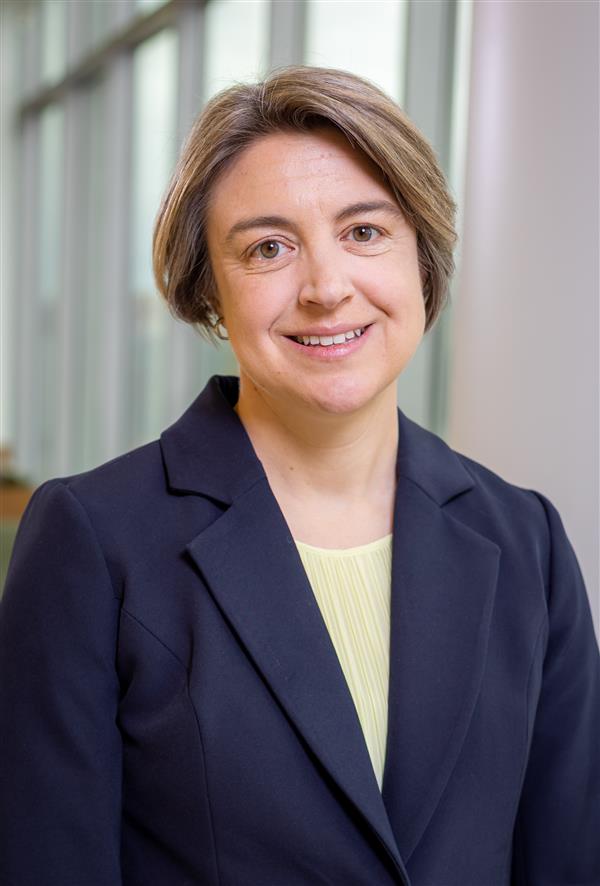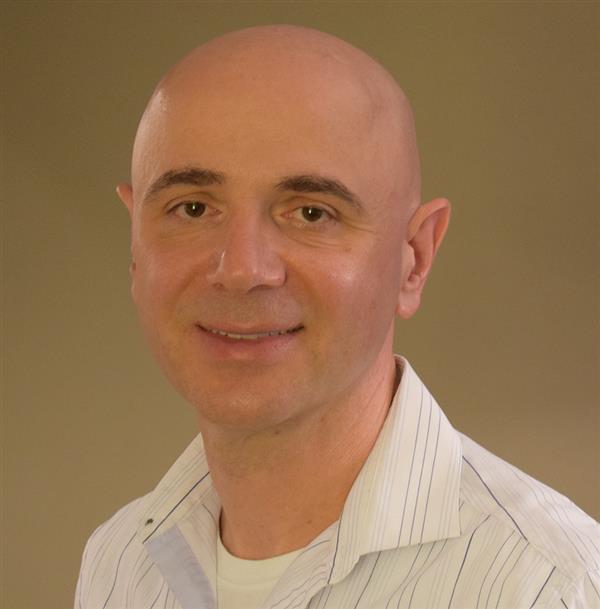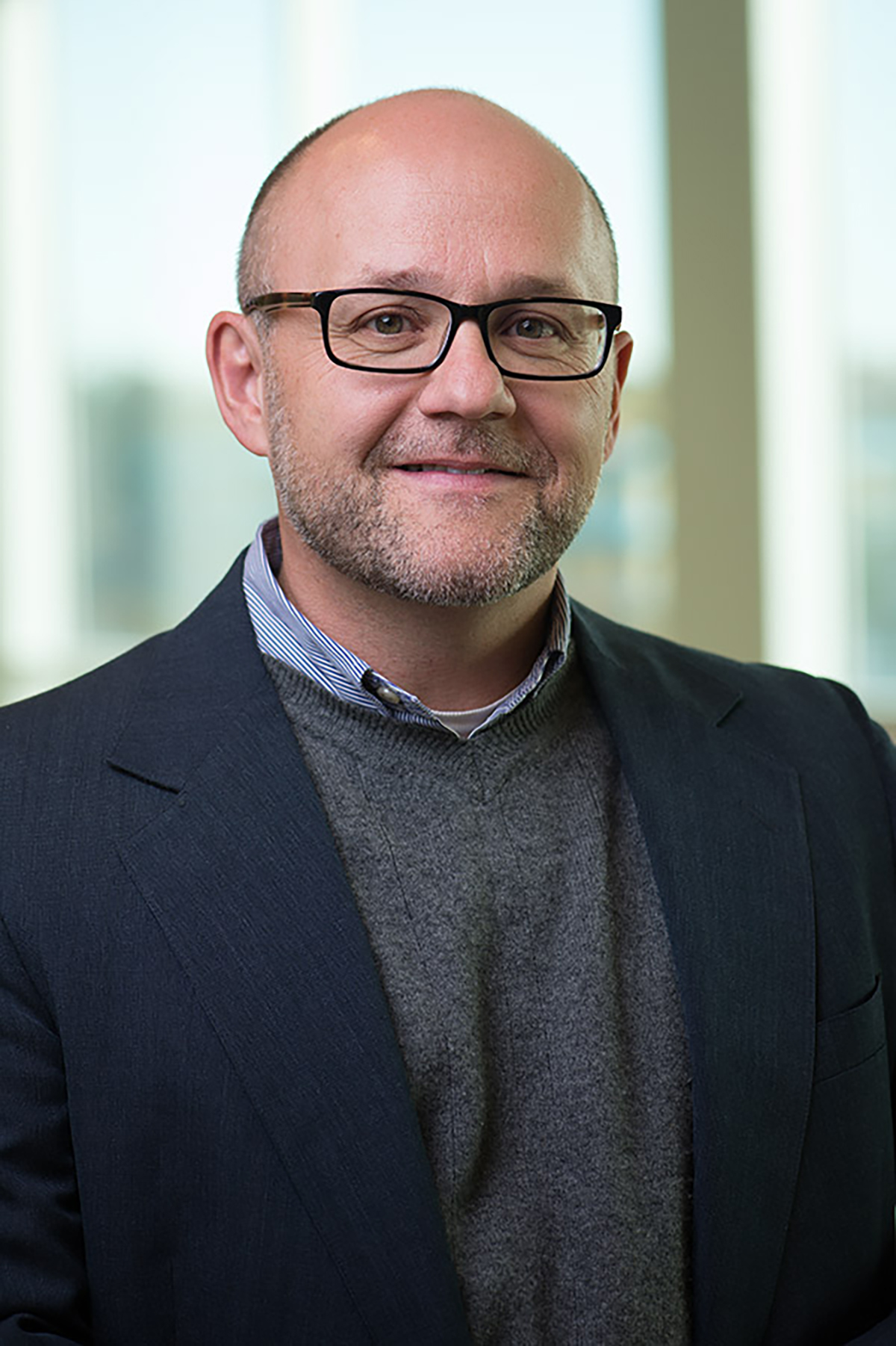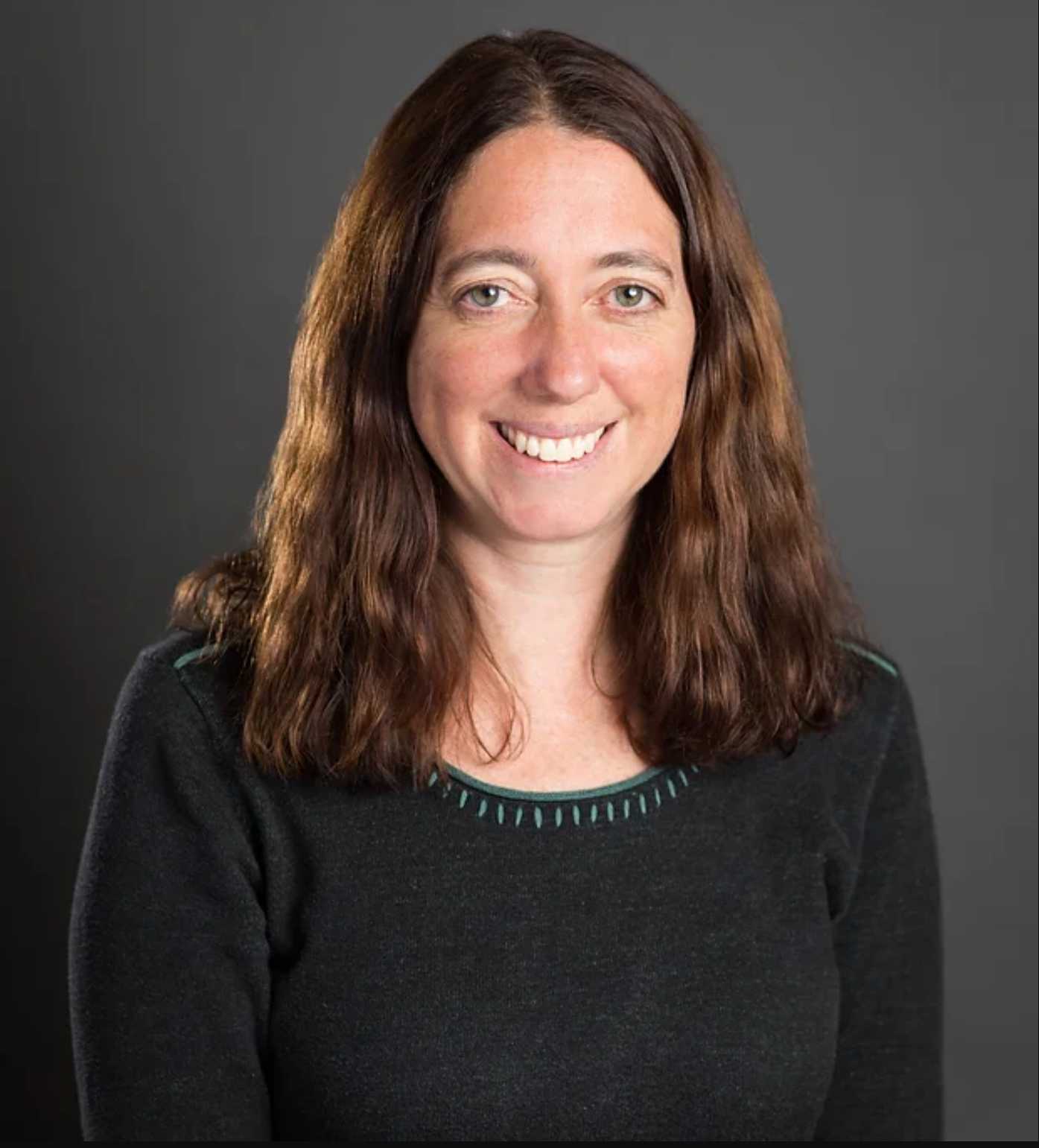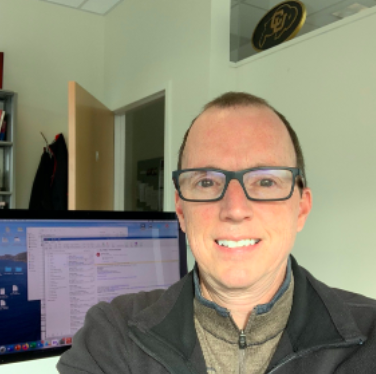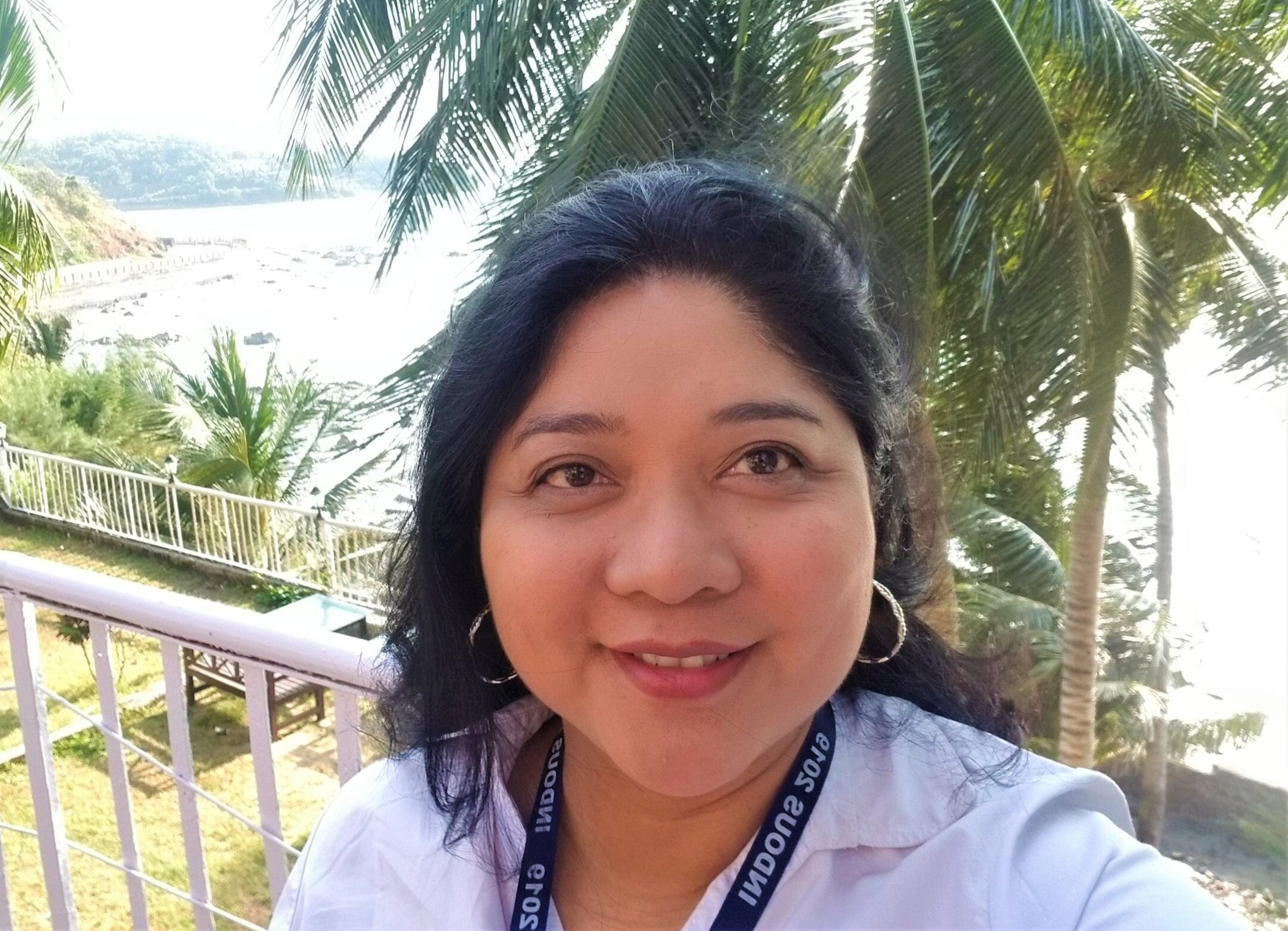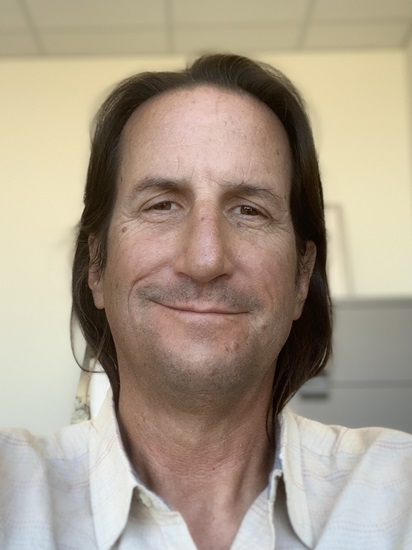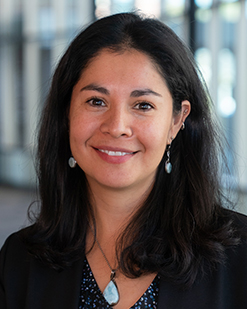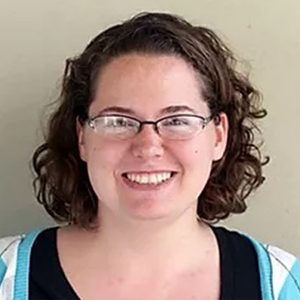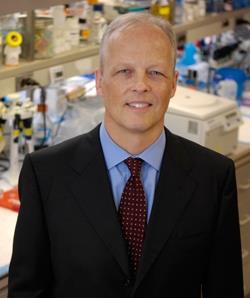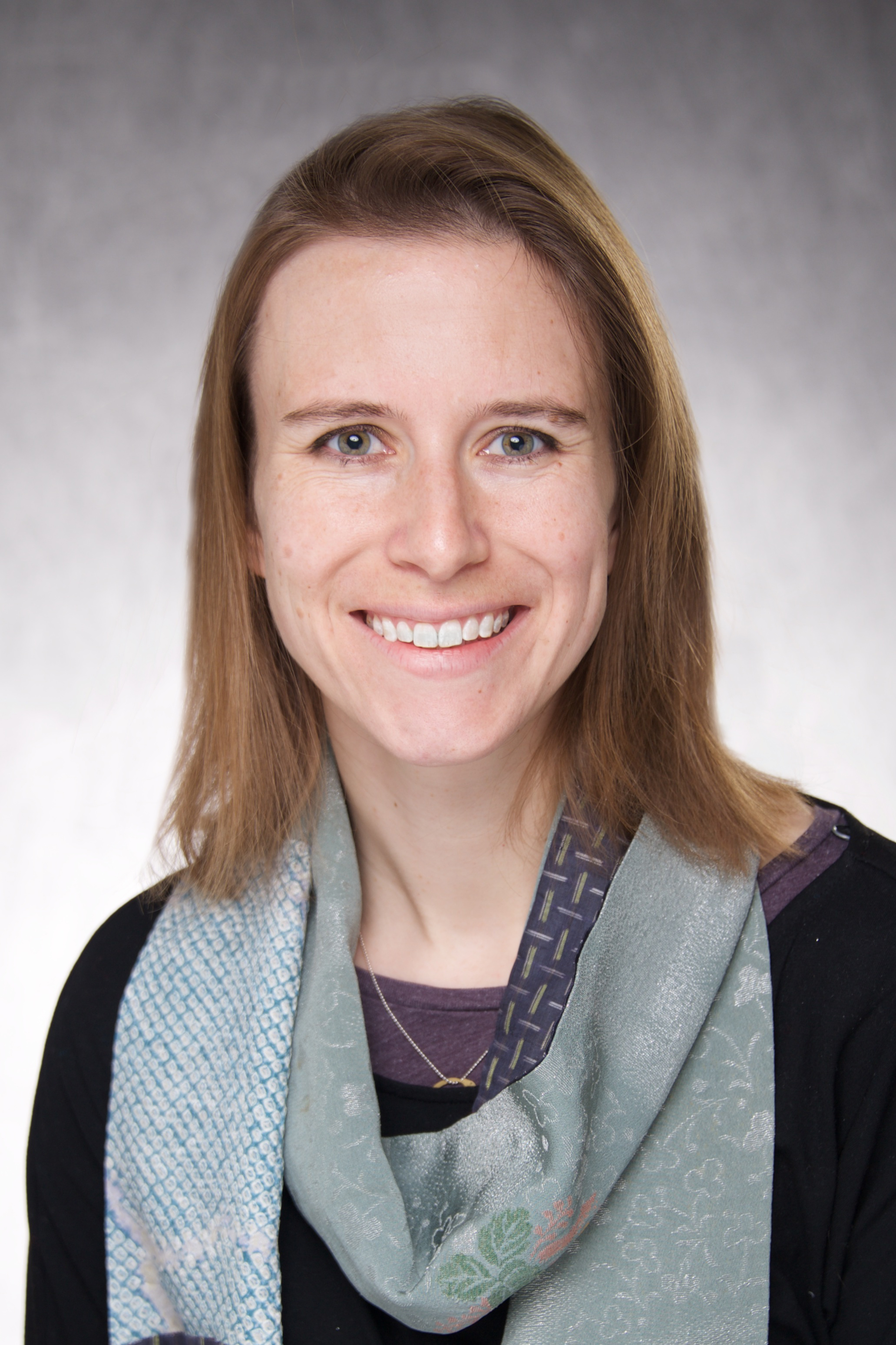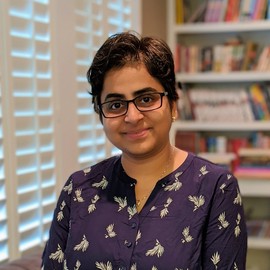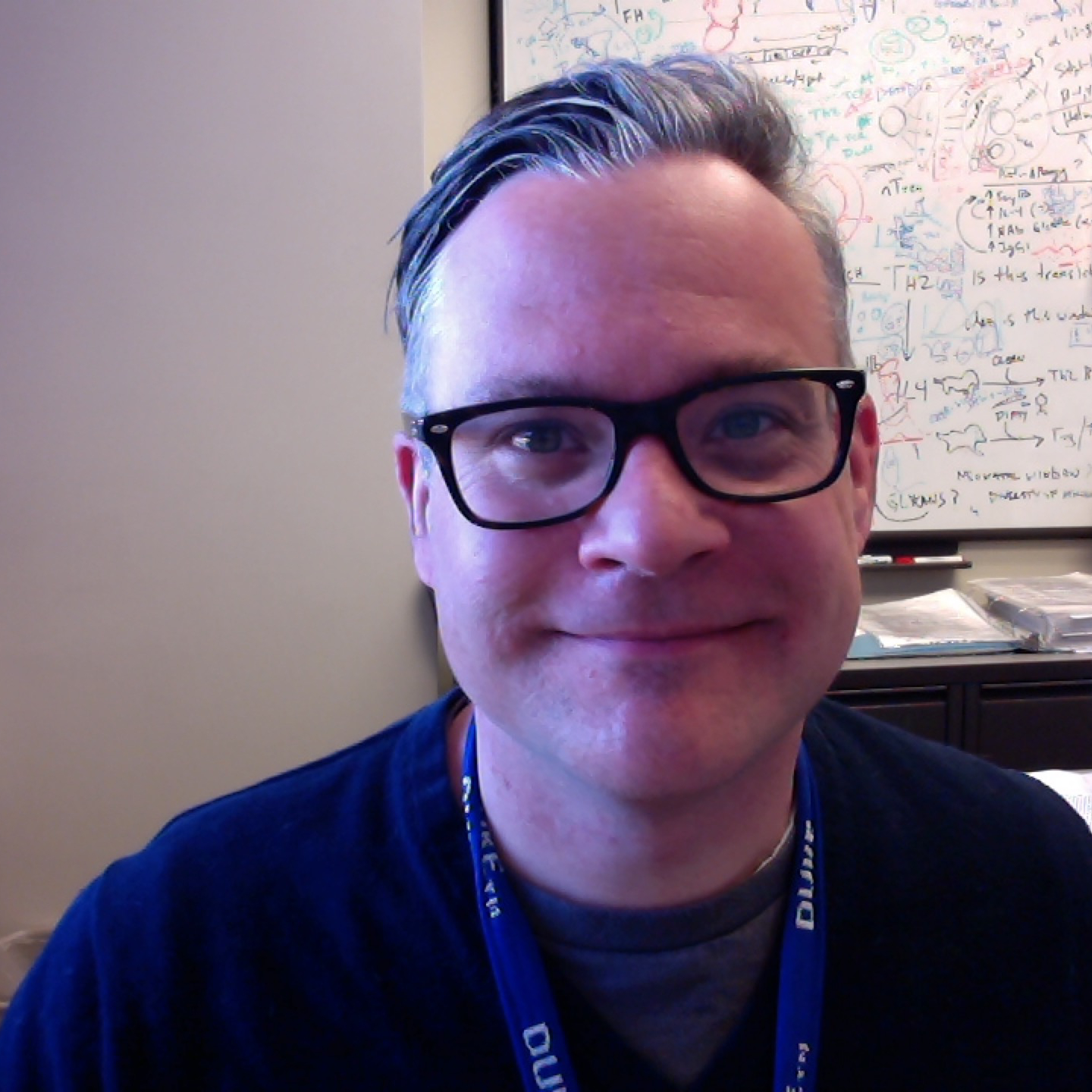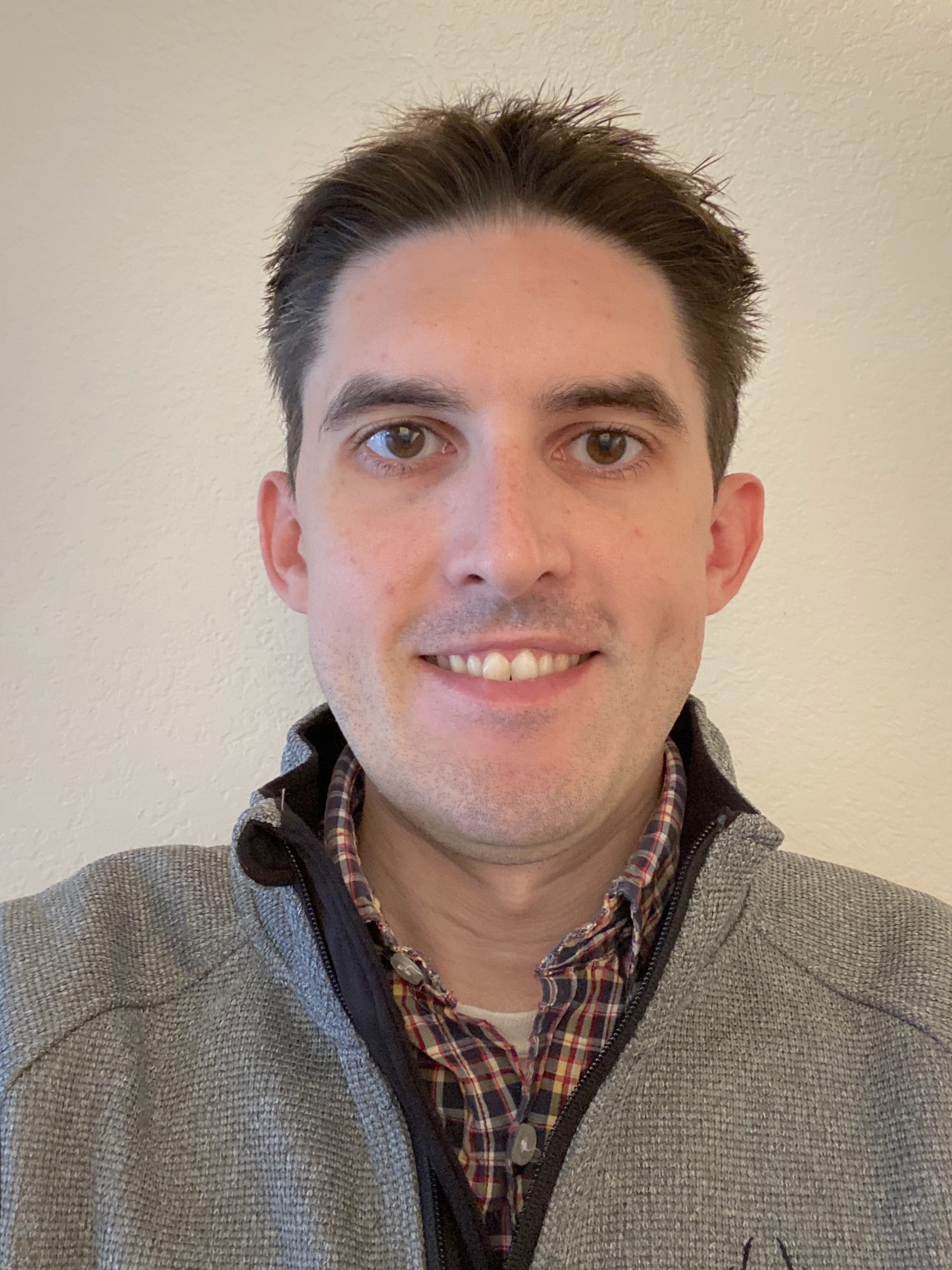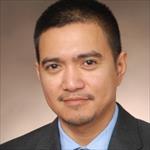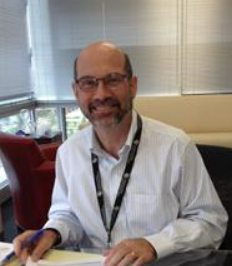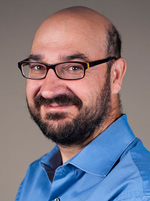FACULTY
The faculty included in this list are the members of the Graduate Program in Microbiology. Any of the individuals listed may serve as laboratory rotation mentors and thesis advisors for Microbiology Graduate Program students.
Search
Filter results by:
David Barton PhD
Professor
Research Focus:
Macromolecular Structure
Microbiology Virology
The Barton lab studies RNA viruses - viral RNA replication - and host-pathogen interactions involving viral RNA and endoribonucleases.
Email:[email protected]
Leslie Berg PhD
(She/Her/Hers)
Professor
Research Focus:
Adaptive Immunity
Immunology
Signal Transduction
The Berg lab studies T cell activation and differentiation with a focus on how differences in TCR signal strength determine T cell functions. As a mentor I have successfully trained over 20 PhD students. To further improve my mentoring skills I have taken university-sponsored mentorship, bias, and equity training and aim to create an inclusive environment in my laboratory.
Email:[email protected]
Tonya Brunetti PhD
(She/Hers)
Research Assistant Professor, Special Graduate Faculty Appointment
Research Focus:
Bioinformatics
Genetics
Analysis of genomic data, primarily related to the immunology and microbiology fields. Additionally, development of computational pipelines and software/code for analyzing large genomic data sets. I also work in the high performance computer research space as co-director of Alpine HPC.
Email:[email protected]
Sarah Clark PhD
Assistant Professor
Completed Upstander/Bystander Training; Completed Mentor Training Courses
Research Focus:
Bacteriology
Cardiovascular & Pulmonary Biology
Inflammation
Microbiology Virology
The Clark lab investigates bacterial-driven immune modulation in the respiratory tract. The upper respiratory tract is home to a diverse microbial community that includes both commensal and opportunistic bacterial pathogens. Research in the lab explores how exposure to these bacteria influences upper and lower respiratory tract inflammation and disease, with a focus on the innate immune response to acute infection.
Email:[email protected]
Sean Colgan PhD
Professor
Research Focus:
Cardiovascular/Pulmonary/Renal/GI Physiology
Cellular Structure
The Colgan Lab studies mucosal inflammation with focus on intestinal inflammation in the context of inflammatory bowel disease and other GI diseases. Studies are aimed at understanding how epithelial and endothelial cells coordinate barrier function and inflammatory responses at mucosal surfaces. Our lab takes a multifaceted approach by investigating the relationships between gut microbiota, host immune system, genetic background, and environmental influences as it pertains to mucosal health and disease, with research emphasis on energy metabolism, host-microbe interactions, hypoxia-inducible factor, and innate immunity.
Email:[email protected]
Kelly Doran PhD
Professor
Completed Mentor Training Course
Research Focus:
Infectious Disease
Reproductive Biology
The overall interest of the Doran Lab is the study of host - pathogen interactions in the central nervous system and the female reproductive tract. Our studies focus on major human pathogens including Streptococcus agalactiae (also known as Group B Streptococcus, GBS), a leading cause of invasive disease in newborns and certain adult populations including pregnant women. We seek to elucidate the mechanisms by which GBS colonizes the vaginal tract during pregnancy and penetrates the blood-brain barrier in the newborn to cause meningitis, as well as characterize host response to infection and colonization.
Email:[email protected]
Breck Duerkop PhD
Associate Professor
Co-Director, Microbiology Program
Completed Upstander/Bystander Training
The Duerkop lab studies bacterial viruses (bacteriophages or phages) and their interactions with their hosts. The long-term goal of the Duerkop lab is to understand how phages and other forms of mobile DNA contribute to host-microbe interactions in the intestine and their overall impact on human health.
Email:Breck Duerkop
Daniel Frank PhD
Associate Professor
Human microbiome in health and disease, Pathogen genomics, and Computational biology.
Email:[email protected]
Jenna Guthmiller PhD
(She/Hers)
Assistant Professor
Completed Mentor Training Course, Completed Upstander/Bystander Training
Research Focus:
Immunology
Infectious Disease
Influenza
Viral Evolution
Our lab is interested in understanding the complexities of humoral immunity against rapidly evolving viruses, particularly influenza viruses. Our lab has three major interests: (1) Design vaccines to induce broadly protective antibody responses against influenza viruses, (2) investigate how humoral immunity develops at distinct anatomical locations and impacts immunity against future influenza virus exposures, and (3) define how humoral immunity drives viral evolution.
Email:[email protected]
J. Kirk Harris PhD
Associate Professor
Respiratory microbiota and model system microbiota.
Email:[email protected]
Jay Hesselberth PhD
Associate Professor
Completed Mentor Training Course; Completed Upstander/Bystander Training
Research Focus:
Accepting Students
Chromosome Biology
Gene Regulation
Genomics Bioinformatics
RNA Bioscience
We are a research laboratory of RNA biologists, technology developers, and data analysts focused on discovering and translating fundamental principles of RNA regulation. A major effort in the lab is to understand how RNA damage and repair are integrated with stress responses by combining method development, bioinformatics, genetics, biochemistry, and cell biology.
Email:[email protected]
Katherine Hisert MD, PhD
(She/Her/Hers)
Assistant Professor
Completed Mentor Training Course; Completed Upstander/Bystander Training
Research Focus:
Accepting Students
Cardiovascular & Pulmonary Biology
Host-Pathogen Interactions
Immunotherapy
Infectious Disease
Innate Immunity
The role of monocytes and macrophages in inflammation and host defense in chronic lung disease
Email:[email protected]
Alexander Horswill PhD
Professor
Research in the Horswill laboratory is focused on the physiology and pathogenesis of Staphylococcus aureus. We are also interested in commensal bacterial interactions with S. aureus, development of new treatment approaches, and we’re starting projects on Gram negative pathogens.
Email:[email protected]
Edward Janoff MD
Professor
Research Focus:
Immunodeficiency
Infectious Disease
His primary areas of study are Immunology, Acquired immunodeficiency syndrome, Internal medicine, Vaccination and Viral disease. His Immunology research is mostly focused on the topic Immune system. His work carried out in the field of Immune system brings together such families of science as Antibody and Antigen.
Email:[email protected]
Marijke Keestra-Gounder PhD
Associate Professor
Co-Director, Microbiology Program
Research Focus:
Infectious Disease
Microbiology Virology
The major focus of my research program is to elucidate pathways of innate immunity that can distinguish harmless microbes from pathogens, thereby enabling the host to mount responses that are commensurate with the threat.
Email:Marijke Keestra-Gounder
Siddharth Krishnamurthy PhD
(He/Him)
Assistant Professor
Completed Mentor Training Course
Research Focus:
Accepting Students
Adaptive Immunity
Autoimmunity
Basic Sciences - Immunology
Genomics Bioinformatics
Host-Pathogen Interactions
Mouse Models
Virology
The mission of the Krishnamurthy lab is to improve human health by leveraging the interplay between viral elements and the enteric immune system.
1. We examine how the intestinal virome influences immunity and viral infection
All animal genomes have numerous remnants of diverse viral sequences in their genome. These sequences alter host physiology and immunity, fundamentally changing the outcome of viral infections.
2. We examine how exogenous viruses evade the antiviral strategies of the intestine to maintain infection competence.
The intestinal barrier is a multicellular tissue that secretes diverse factors to restrict viral infection; however, because viruses can still infect this tissue, they can clearly evade these defense mechanisms. We use the tools of molecular virology and mucosal immunology to study these viral evasion proteins and discover these mechanisms.
3. We examine how viral evasion in the intestinal tract of animal reservoirs poises spillover into new hosts.
Many zoonotic viruses exist as enteric viruses in their reservoir hosts while infecting other human tissues. We study how viruses evolve in these animal intestinal reservoirs and how these adaptations might make a virus more or less likely to be able to infect a human.
Email:[email protected]
Kristi Kuhn MD, PhD
(She/Hers)
Associate Professor
Completed Upstander/Bystander Training; Completed Mentor Training Course
Research Focus:
Accepting Students
Autoimmune Disorders
Host-Pathogen Interactions
Other Systems
Rheumatoid Arthritis
The central hypothesis of our laboratory is that commensal microbes at the intestinal mucosal surface modulate local adaptive immune responses that affect the development of autoimmunity.
Email:[email protected]
Mamuka Kvaratskhelia PhD
Professor
The research in our laboratory focuses on new generation HIV-1 inhibitors and virus-host interactions. We employ complementary biochemistry, structural biology, pharmacology, molecular biology and virology approaches.
Email:[email protected]
Laurel Lenz PhD
(He/Him/His)
Professor
Completed Mentor Training Courses; Completed Upstander/Bystander Training
Research Focus:
Accepting Students
Cell Biology
Host-Pathogen Interactions
Immunology
Inflammation
Innate Immunity
Signal Transduction
Our research uses microbes and models of infection to dissect fundamental mechanisms that regulate inflammatory responses. Through study of these mechanisms and their impact on infection and other inflammation-associated diseases, we strive to uncover new biology and to identify novel drug targets and treatments relevant to infectious, inflammatory, or cancerous diseases.
Email:[email protected]
Catherine Lozupone PhD
Associate Professor
We combine bioinformatics and experimental work to understand the driving factors of human microbiota composition, host:microbe interactions, and the intersection with diet in a variety of disease contexts. Our work has a particular focus on HIV-positive and high HIV-risk populations, cancer and Clostridioides difficile infection.
Email:[email protected]
Thomas (Tem) Morrison PhD
Professor
Completed Upstander/Bystander Training
Research Focus:
Infectious Disease
Microbiology Virology
Emerging infections are a global public health threat. In the 21st century alone, we already have experienced devastating outbreaks of infectious disease, including diseases caused by mosquito-borne (e.g., chikungunya and Zika viruses) and respiratory RNA viruses (e.g., SARS-CoV-2). Our laboratory seeks to improve our knowledge of the molecular pathogenesis of these infections (i.e., what are the critical host-pathogen interactions that contribute to protection or pathology?) by addressing questions at the interface of immunology and virology/parasitology.
Email:[email protected]
Maria Nagel MD
Professor
The mission of Dr. Maria Nagel’s lab is to dissect mechanisms by which viruses evade immune clearance and produce aberrant, chronic inflammation that leads to disease corresponding to affected sites. Research is predominantly focused on the pathogenesis of varicella zoster virus (VZV) and herpes simplex virus (HSV), as well as new exploratory studies on SARS-CoV-2. By understanding virus-host interactions, we can identify biomarkers that would assist clinicians in disease diagnosis and prognosis, as well as identify pathways that can be targeted to treat infection and associated inflammation.
Email:[email protected]
Ruth Napier PhD
Associate Professor
Research Focus:
Accepting Students
Adaptive Immunity
Animal models
Autoimmune Disorders
Autoimmunity
Basic Sciences - Immunology
Bioinformatics
Genetics
Immunology
Inflammation
Innate Immunity
Microbiology
Mouse Models
Precision Medicine
Rare Diseases
The Napier Lab studies how genes and microbes shape the immune system to drive inflammation and disease. We focus on understanding how mutations in genes that encode the microbial signaling proteins, CARD9 and NOD2, disrupt immune balance and trigger neutrophil- and T cell–driven inflammation. Our work spans microbiology, immunology, and genetics to uncover how these pathways contribute simultaneously to infection and chronic inflammatory diseases—including Blau syndrome, spondyloarthritis, uveitis, and Parkinson’s disease. We are motivated to translate our basic research findings to the clinic within a short time.
Email:[email protected]
Kyla Ost PhD
Assistant Professor
Completed Mentor Training Course
Research Focus:
Infectious Disease
Inflammation
Microbiology Virology
Other Systems
Fungi are normal members of the human gut microbiome that are benign commensals in people. However, fungi can become pathogenic when the microbiome or immune system is perturbed. Candida species dominating the gut fungal community are notorious opportunistic pathogens capable of causing life-threatening disseminated infections. Candida species can also drive pathogenic inflammation in the gut and are associated with worsened inflammatory bowel disease in people. It is still largely a mystery as to how these fungi reside peacefully in the gut of most people. The goal of the Ost lab is to uncover the immune forces that constrain these fungi to a commensal state to prevent disease.
Email:[email protected]
Brent Palmer PhD
Associate Professor
Delineating the effects of HIV infection on T cell function.
Email:[email protected]
Cristina Penaranda PhD
(She/Her/Hers)
Assistant Professor
Completed Mentor Training Course; Completed Upstander/Bystander Training
Research Focus:
Bacteriology
Host-Pathogen Interactions
Infectious Disease
Our lab studies host-pathogen interactions with the goal of defining host and bacterial pathways involved in bacterial persistence.
Email:[email protected]
Vanessa Phelan PhD
Associate Professor
We aim to study the chemical ecology of environmental and host-derived microbiome communities by developing broadly accessible experimental approaches. We accomplish this goal by combining modern and classical tools and techniques from a variety of scientific fields, including chemistry, microbiology, cell biology, molecular biology, and biochemistry.
Email:[email protected]
Eric Poeschla MD
Professor
His research group investigates the roles that cellular proteins play in viral replication cycles, and innate immune system factors that mediate frontline antiviral defenses and prevent cross-species virus transmission. They are interested in cellular systems that sense and respond defensively to viral RNA and DNA and also prevent autoimmunity to self nucleic acids.
Email:[email protected]
Lilliana Radoshevich PhD
(she/hers)
Assistant Professor
Research Focus:
Accepting Students
Cell Biology
Host-Pathogen Interactions
Innate Immunity
Mouse Models
Research in the Radoshevich laboratory is focused on host responses to the cytosolic intracellular pathogens, Listeria monocytogenes, Francisella tularensis, and SARS-CoV-2. More specifically, we explore changes in the post-translational landscape of the cell following infection. Ubiquitin-like modifications (UBLs) are rapid, reversible and can profoundly alter cell fate and function. Intriguingly, the majority of UBLs are involved in the cellular response to stress, in particular the response to infection and autophagy. We take an interdisciplinary approach combining cutting-edge proteomics with genome editing, biochemistry, cell biology and in vivo infection models to determine fundamental properties and modes of action of understudied ubiquitin-like modifications.
Email:[email protected]
Janani Ravi PhD
Assistant Professor, IMMU Special Graduate Faculty Appointment
Completed Mentor Training Course; Completed Equity Certificate; Completed Upstander/Bystander Training; Completed DEI Training
Research Focus:
Bioinformatics
Computational Biology
Genomics Bioinformatics
Host-Pathogen Interactions
Infectious Disease
Dr. Janani Ravi is an Assistant Professor in the Dept. of Biomedical Informatics with ties to Dept. of Immunology and Microbiology. She completed her PhD in Computational Biology at Virginia Tech, postdoctoral research at the Rutgers Public Health Research Institute, and started her research group at Michigan State University prior to moving to CU in late 2022. Dr. Ravi’s research group, JRaviLab, develops general-purpose computational approaches that integrate large-scale heterogeneous public datasets for mechanistic understanding of microbial genotypes, phenotypes, and diseases.
The JRaviLab asks:
How do we link pathogen genotypes to phenotypes?
How can host responses to infection inform disease mechanistics and therapeutics?
Her group provides open data/software and easy-to-use web applications for biomedical researchers, and the methods are developed to be pathogen- and disease-agnostic. Dr. Ravi is currently supported by an NIH NIAID U01 (antimicrobial resistance prediction) and R21 (host responses, host-directed therapeutics), two CU CPMR-DBMI dyads (bone health, implant corrosion), Colorado Translational Research Scholar Program, and an NIH NLM T15 supporting her postdoc.
Dr. Ravi is engaged and committed to mentoring/training, education, and outreach, and creating and sustaining diversity and inclusivity in data science for learners and professionals alike, focused on increasing the participation of underrepresented minorities in the field. She founded R-Ladies East Lansing and R-Ladies Aurora, and co-founded Women+ Data Science and AsiaR. She also co-chairs the R/Bioconductor Community Advisory Board.
Email:[email protected]
R. Lee Reinhardt PhD
(He/Him/His)
Associate Professor
Research Focus:
Adaptive Immunity
Allergy
Host-Pathogen Interactions
Immunology
Innate Immunity
Our research program focuses on type-2 immunity in pulmonary disease. We are interested in understanding how T cells and innate lymphoid cells orchestrate type-2 inflammation to protect against infection, promote tissue repair, and suppress the onset of allergic and autoimmune disease.
Email:[email protected]
Brian Russo PhD
Assistant Professor
Completed Mentor Training Course; Completed Implicit Bias Training
Research Focus:
Accepting Students
Cell Biology
Microbiology Virology
The Russo lab is interested in understanding how bacterial pathogens interact with their hosts. As a model, we investigate the pathogenesis of Shigella flexneri, which infects cells of the colon and causes diarrhea in humans.
Email:[email protected]
Mario Santiago PhD
Associate Professor
Completed Mentor Training Course
Research Focus:
Immunodeficiency
Microbiology Virology
Our laboratory studies the interplay between the innate and adaptive immune response against retroviruses to conceptually advance vaccine and cure strategies against HIV/AIDS. We are specifically interested in “restriction factors” – host proteins that could directly inhibit retroviruses but we discovered also play critical roles in shaping adaptive immune responses. These factors could be regulated by Type I interferons, thus highlighting possibilities for clinical translation.
Email:[email protected]
Michael Schurr PhD
Professor
The focus of research efforts in my laboratory is on the pathogenic mechanisms of Pseudomonas aeruginosa, specifically in cystic fibrosis (CF) chronic respiratory infections.
Email:[email protected]
Arianne Theiss PhD
(she/her/hers)
Associate Professor
Completed Upstander/Bystander Training; Completed Mentor Training Course; Completed Bias Reduction Course
Research Focus:
Accepting Students
Cancer Biology
Cardiovascular/Pulmonary/Renal/GI Physiology
Cell Biology
Cellular Physiology
Host-Pathogen Interactions
Inflammation
Innate Immunity
Stem Cells
The overall goal of the Theiss Lab is to elucidate the role and mechanism whereby mitochondrial signaling pathways in intestinal epithelial cells contribute to gastrointestinal diseases, specifically inflammatory bowel diseases (IBD) and colorectal cancer.
Email:[email protected]
Kenneth Tyler MD
Professor
Research Focus:
Neuroimmunology
Neurological Disorders and Stroke
His laboratory uses a variety of neurotropic viruses, including reoviruses, Enterovirus D-68, and Flaviviruses (West Nile, Japanese encephalitis and Zika) to study the pathogenesis of viral CNS infections. A particular interest has been in understanding the nature of specific cellular pathways (signaling, gene expression, apoptosis) that are activated during neurotropic viral infections and that lead to neuronal injury and death. The laboratory uses primary cell cultures, ex vivo slice cultures of brain and spinal cord, and murine models to study virus-cell interactions.
Email:[email protected]
Linda van Dyk PhD
Professor
Completed Mentor Training Courses; Completed Upstander/Bystander Training
Research Focus:
Cancer Biology
Gene Regulation
Microbiology Virology
The van Dyk lab studies the interactions between virus and host in health and disease. Specifically, our work focuses on gammaherpesviruses.
Email:[email protected]
Andres Vazquez-Torres DVM, PhD
Professor
Research Focus:
Genetics
Metabolism
Redox biology
Signal Transduction
The research in the Vázquez-Torres lab uses state-of-the-art biochemical, genetic and molecular biology approaches to understand the molecular mechanisms by which reactive species mediate resistance of macrophages against intracellular bacteria, as well as the adaptive strategies that boost antioxidant and antinitrosative defenses of pathogenic bacteria.
Email:[email protected]
Martin Voskuil PhD
Associate Professor
Research Focus:
Cellular Structure
Microbiology Virology
Mycobacterium tuberculosis survival during latent disease.
Email:[email protected]

